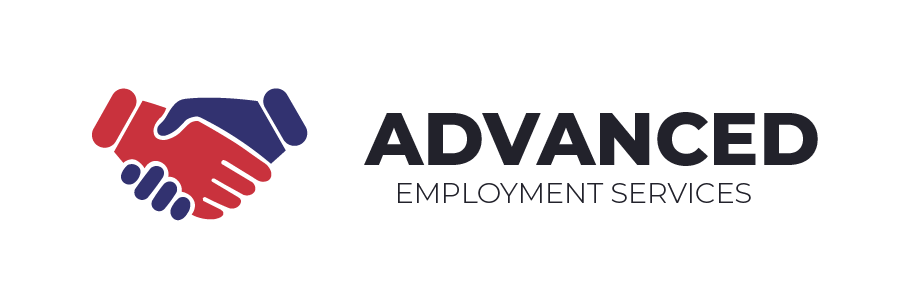Table of Contents
In today’s fast-paced work environment, staying current with the latest trends, skills, and technologies is more important than ever. Professional development plays a crucial role in ensuring that employees remain competitive and capable of meeting the evolving demands of their roles. This article will explore what professional development is, why it matters, and how you can keep up to date in the workplace. Whether you’re a seasoned professional or just starting your career, investing in continuous learning is key to long-term success. Advanced Employment Services is here to guide you on your journey to professional growth.
What is Professional Development?
Professional development refers to the continuous process of acquiring new skills, knowledge, and experience that are relevant to your career. This ongoing education can take many forms, including formal training programs, online courses, workshops, certifications, conferences, and even on-the-job learning opportunities. The goal of professional development is to enhance your capabilities, stay up to date with industry trends, and improve your overall job performance.
Types of Professional Development
- Formal Education: This includes pursuing additional degrees, certifications, or specialized courses related to your field. Many professionals choose to advance their qualifications through higher education or industry-specific certifications.
- Workshops and Seminars: These are often short-term learning opportunities that focus on specific skills or topics. Workshops and seminars are valuable for staying informed about the latest developments in your industry.
- Online Learning: With the rise of e-learning platforms, online courses have become a popular way for professionals to learn new skills at their own pace. Websites like Coursera, Udemy, and LinkedIn Learning offer a wide range of courses tailored to various industries.
- On-the-Job Training: Learning directly in the workplace through mentoring, job shadowing, or participating in cross-functional projects is another valuable form of professional development.
- Conferences and Networking Events: Attending industry conferences and networking events allows you to meet other professionals, exchange ideas, and learn about the latest trends and innovations in your field.

Why Professional Development Matters
Professional development is not just a buzzword—it’s a critical component of career success. Here’s why it matters:
Keeping Up with Industry Changes
Industries are constantly evolving, and what was relevant a few years ago may no longer be applicable today. By engaging in professional development, you can keep up to date with the latest industry trends, technologies, and best practices. This knowledge allows you to stay ahead of the curve and ensures that your skills remain relevant.
Example: Consider a digital marketer who stays updated on the latest SEO techniques and algorithm changes. By keeping their skills sharp, they can implement the most effective strategies for their clients or employer.
Enhancing Your Skills and Knowledge
Professional development provides an opportunity to expand your skill set and deepen your knowledge in your area of expertise. This continuous learning can lead to greater job satisfaction, as you feel more competent and capable in your role.
Example: A nurse who pursues additional certifications in specialized areas such as critical care or pediatrics will not only improve their expertise but also increase their value to their employer.
Career Advancement Opportunities
Investing in your professional development can open doors to new career opportunities. Whether you’re aiming for a promotion, a salary increase, or a new job altogether, having up-to-date skills and qualifications can make you a more attractive candidate.
Example: An IT professional who earns certifications in cloud computing or cybersecurity may be more likely to be considered for higher-level positions within their company.
Building Professional Networks
Engaging in professional development often involves interacting with other professionals in your field. These connections can be invaluable for networking, sharing knowledge, and even discovering job opportunities.
Example: Attending a conference on leadership can connect you with mentors, peers, and potential employers who can support your career growth.
Increasing Job Security
Employees who continuously develop their skills are often seen as more valuable assets to their employers. This makes them less likely to be affected by layoffs or organizational changes.
Example: In times of economic uncertainty, an accountant who has kept up to date with the latest tax regulations and software tools may be more indispensable to their company.
How to Keep Up to Date with Professional Development
Staying current in your career requires a proactive approach to professional development. Here are some strategies to help you keep up to date:
Set Clear Career Goals
Begin by setting clear, achievable career goals. Understanding where you want to go in your career will help you identify the specific skills and knowledge you need to develop.
Example: If your goal is to become a project manager, focus on gaining skills in project management software, leadership, and communication.
Create a Professional Development Plan
Once you have your goals in place, create a professional development plan that outlines the steps you’ll take to achieve them. This plan should include the courses, certifications, and other learning opportunities you’ll pursue.
Example: If you want to improve your data analysis skills, your plan might include enrolling in an advanced Excel course and attending a data analytics workshop.
Stay Informed About Industry Trends
Regularly read industry publications, blogs, and news to stay informed about the latest developments in your field. Subscribing to industry newsletters and following thought leaders on social media can also keep you in the loop.
Example: A graphic designer might subscribe to design magazines and follow influencers on platforms like Behance and Instagram to stay inspired and updated on design trends.
Take Advantage of Online Learning Platforms
Online learning platforms offer a flexible way to acquire new skills. Take advantage of these resources by enrolling in courses that align with your career goals.
Example: A marketing professional might take a course on Google Analytics to enhance their ability to track and analyze marketing campaigns.
Attend Workshops and Conferences
Attend workshops, conferences, and seminars that focus on the skills and knowledge areas you want to develop. These events provide not only learning opportunities but also a chance to network with other professionals.
Example: A software developer might attend a conference on artificial intelligence to learn about the latest developments in the field and connect with industry experts.
Seek Out Mentorship and Peer Learning
Mentorship and peer learning can be incredibly valuable for professional development. Seek out mentors who can provide guidance and feedback, and engage in peer learning groups to share knowledge and experiences.
Example: An aspiring leader might join a leadership circle where they can learn from more experienced managers and exchange ideas with peers.
Implement What You Learn
Apply the knowledge and skills you gain from professional development activities in your current role. Implementing what you’ve learned helps reinforce your new skills and demonstrates your commitment to growth.
Example: After completing a course on project management, you might start using new project management tools or techniques in your day-to-day work.

The Role of Employers in Professional Development
Employers play a significant role in supporting the professional development of their employees. Companies that invest in their employees’ growth not only improve their workforce’s capabilities but also foster a culture of continuous learning and improvement.
Providing Training and Development Opportunities
Employers can support professional development by offering training programs, workshops, and seminars that help employees enhance their skills.
Example: A company might provide in-house training sessions on the latest software tools or sponsor employees to attend industry conferences.
Encouraging Continuing Education
Employers can encourage continuing education by offering tuition reimbursement or flexible schedules for employees pursuing further education.
Example: An organization might reimburse part of the tuition costs for employees earning a relevant certification or degree.
Fostering a Learning Culture
Companies that foster a learning culture encourage employees to seek out learning opportunities and share their knowledge with colleagues.
Example: A company could implement a “Lunch and Learn” program where employees present on topics they’ve recently learned about, creating an environment of shared knowledge and continuous growth.
Conclusion
Professional development is essential for staying competitive in today’s job market. By continuously learning and updating your skills, you can ensure that you remain a valuable asset to your employer and advance your career. Whether you’re looking to enhance your current role or prepare for future opportunities, investing in professional development is a crucial step. Advanced Employment Services is here to support you every step of the way, offering guidance and resources to help you keep up to date and achieve your career aspirations.
If you’re ready to take control of your professional growth, contact Advanced Employment Services today and let us help you on your journey to success.



